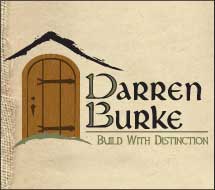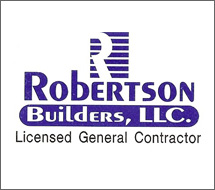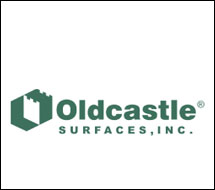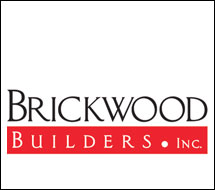Why Did You Become A Contractor?
by Anonymus
I have to write this. After 30+ years in and around the construction industry I have learned a lot. My business holds many licenses including Unlimited/Unclassified General Contracting, has sustaining capital put aside, along with very high bonding abilities. I personally only have a high school education, unlike most of my customers, who are college educated, but my education comes from the school of hard knocks and experience. My clients’ 8-years of college education made it possible for them to earn their 6-digit salaries; my 30+ years in the ditch and in the field have determined my salary earnings, of which I am very proud. In this industry/profession we should all be proud of who we are and what we do. Why do I say this and why am I adamant about this? Look at it from this perspective – what we provide for the public, our client.
Here are the top four contractors in this industry, in my opinion, who provide the public with the basic requirements, as well as extravagances, for a clean, safe and comfortable lifestyle.
The Builder, who provides shelter, along with the desires and luxuries that the client may want. The HVAC contractor, who provides you comfort, clean air and clean space in your home, hospitals, retail/office and manufacturing facilities for the client’s health. The Plumbing contractor, who provides potable water, sanitary sewer and keeps the public safe from disease and the United States from becoming a third world dirty place. The Electrician, who provides the comforts that all of us have become used to over the years.
I have watched the businesses come and go. It is very disappointing to see this, as I am very sure of the biggest reason that builders, general contractors, HVAC contractors, plumbing contractors and electrical contractors struggle so hard to survive.
Primarily, I believe it is the lack of business education. In general, the respected person is good or even great at building or installing, but terrible at being a businessman and actually running his/her business. Years ago, as I was learning, I asked the CPA I was working with what overhead was. How do I calculate the overhead for my business and what are all the parameters that affect the overhead? The answers I received were good, but I was left with only one simple equation to use; operating costs divided by revenue, which only gave me a percentage to use, or multiply with when estimating material, labor, subs, etc… this is a percentage of sales and not the choice equation!
Your overhead costs also have to be determined and calculated into an hourly rate. Remember, most contracting firms have multiple field employees. You owe your business the time it takes to calculate and break your overhead into an hourly rate – we only have 2,080+ working hours in a year – and all of the unproductive hours (holidays, vacation, personal time, sick days, travel, etc.) will be subtracted from the 2,080+ hours a year to determine what your real working hours are. If you have $500,000.00 of overhead, divide it by your working/productive hours and see what that number is. You will be surprised! If you charge $85.00/hour, I will bet you are losing money. This number also comes in strong when you are bidding high labor, low material jobs where the percentage of costs will not generate enough overhead to cover costs!
To summarize, the business of contracting most often fails due to four fundamental mistakes in business math. First is the fact that 90% of all contractors calculate overhead and profit as a percentage of cost rather than a percentage of selling price. Second is the widespread failure to accurately measure and apply overhead expenses to hourly labor rates. The third common mistake made, especially with start-ups, is not knowing the first and second mistakes and pricing your work to be less than your competition. Get to know your competition and build a relationship with them! Fourth, letting your clients tell you what you are going to be paid, usually due to the fact that some contractors do not believe in what they do, their importance to society and that they should be paid as well as any other profession, period.
When calculating, estimating and preparing a bid there is a basic principal that should be locked into any/all contractors memories forever . . . overhead and profit percentages are percentages of the selling price, not direct cost!
Mathematical Calculation:
Overhead is 15% of selling price
Net Profit is +10% of selling price
Total 25% of selling price
Selling price equals 100%
Subtract overhead & Net Profit Total – 25%
Direct Cost (Material-Permit-Labor) 75% “Divisor”
Direct Cost ($1000) = 75% of “X” (Selling Price)
$1000.00 /.75 $1,333.33 Selling Price
“X” = .75 $1,000.00 Direct Cost
Last week I received a complaint through the Better Business Bureau from a customer who felt he had been overcharged. The customer not only accepted the price before work was started, but could have refused our services at any time had he felt he was being charged too much.
My company provided a proposal to a new client, before any work was done. The client accepted the price on the proposal, before any work was done. The client signed a contract and approved of the work before it was started, signed off again at the completion of the job with his approval that the work that was done to his satisfaction, and paid us in full. We provided service, quality products, expertise, value, workmanship and an experience unmatched in this industry, at a fair and profitable price. We provided more than what we contracted for, yet the client decided, after the fact, that he was overcharged and complained to the Better Business Bureau.
How unfair and unethical is that? Do you go to a doctor’s office, have surgery, eat at a restaurant, buy a car or even see your lawyer and then claim, after the fact, after everything is done, that you were overcharged? I don’t think so.
We hurt the community, the industry, our employees and their families, our suppliers, our clients and everyone around us with “lowball” pricing and the mindset that “I will make it up in volume” or “I will make it up on the next job.” We should be providing jobs, good jobs with retirement, health insurance, vacation time, holidays, etc. and nothing less.
It is your business and it is your responsibility to know your costs, your overhead and how to calculate it. Believe in your business and your price because what we do is very important to society as we know it. Make it your job to sell the value of what you are providing, the service you provide and make the public aware of what you are doing for them. We should be proud to be contractors!











































































